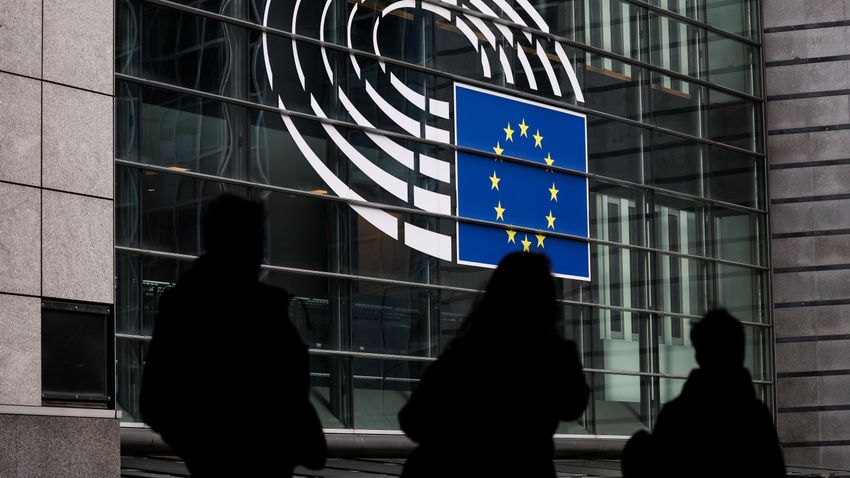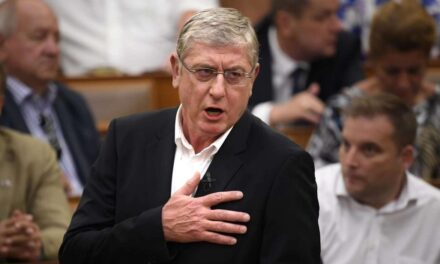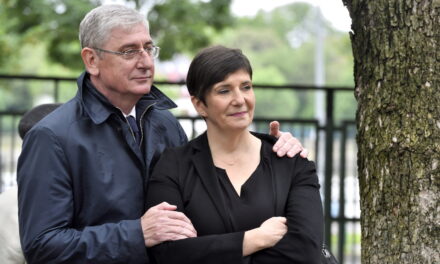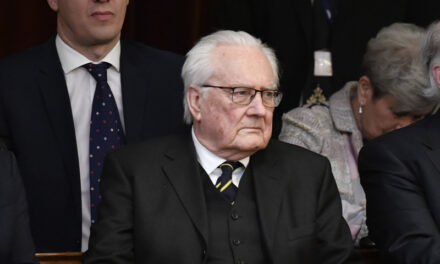Hungary - true to its centuries-old traditions - is trying to resist the pressure against its interests. But could there be a European policy and a construction that would suit our country and at the same time suit the other countries?
Yes, there has already been such a policy and construction, and it was the Treaty of Rome, which created a European economic community. It is true that it only applied to six states, but its concept could have been extended to other European countries as well, and it extended to nine more, up to the Maastricht Treaty.
If you read the Treaty of Rome, you can feel how much it tries to take into account the different situations of each country and the fact that it takes longer to achieve full duty-free status.
The gradual reduction of customs duties was planned for about ten years, and the paragraphs of the treaty specifically stipulated the balancing of the balance of payments, that is, the prevention of one country becoming indebted to another. The contract worked well, it laid the foundation for almost three decades of dynamic growth and the European social market economy, which was perhaps unique in the world in that it offered a high standard of living to broad social strata.
The precursor to the Treaty of Rome is the European Coal and Steel Community, the essence of which is the German-French political agreement, including the joint use of resources, which makes it possible to avoid new European wars.
The assumption behind the Schuman Declaration, which started the compromise, was that if these two great states of Europe united, the major wars that characterized the 20th century could be prevented. In addition to this, the French president, De Gaulle, even had the idea that Europe extends to the Urals, that is, he included the Russians in the European community, and for his part even represented an independent European geopolitical thinking, in the spirit of which the French army withdrew from from NATO's integrated military command.
But the era characterized by Charles Gaulle and Konrad Adenauer has passed and the changes of the era must be pointed out in some of its characteristics.
The first, and perhaps most important, is that social morale has greatly deteriorated compared to post-war times.
Wars are trying times, here it is decided who is suitable for a task and who is not. However, the politicians trained in war died out by the end of the 20th century, and the following generations of politicians got into leadership and thus decision-making positions based not on their performance, but rather on their unprincipledness, lack of scruples, financial and media support. The behavior of the leaders then radiates to society as a whole, even there they do not think that the rules that would serve the interests of society as a whole apply to them as well.
In Western Europe, a typical example of this is that politicians no longer do what they were elected for, but instead represent the interests of other forces, presumably helping to smooth their political ambitions. A typical example of this is Annalena Baerbock, who stole part of her book on the future of Germany from others, lied about her schools in her biography, and in support of Ukraine went so far as to declare that she did not care what her German voters thought. Today he is the foreign minister of Germany.
The second is - and this is closely related to the first - that the two main political currents characterizing the post-World War II period, social democracy and Christian democracy, were largely transformed.
This transformation was characterized by John Schindler, a former employee of the US National Security Agency, as the former social democracy has become a "cultural left", which is no longer interested in the traditional goals of social democracy, such as reducing income differences, and instead focuses on destroying the foundations of traditional societies. is seen as inexcusably racist, sexist, xenophobic, homophobic and generally outdated.
Mass immigration is also supported because it gradually undermines traditional culture. This transformation was based on the ideology of the Frankfurt School and Karl Popper's views on the open society. During the "long march to the institutions", the representatives of this cultural left practically took control of public life (parties, knowledge centers, media, etc.).
At the same time, a turn took place on the right. Former right-wing parties (e.g. Christian Democrats) have forgotten their traditional values (God, country, family) and have become servants of the interests of multinational capital, which is why Schindler calls them "corporate right", which can be translated into Hungarian as "big capital right". The cultural left and the big-capitalist right agree on many issues, such as the dismantling of traditional societies, the support of mass immigration, the abolition of nation-states, and the support of multicultural societies. What's more, it is multinational capital that supports NGOs of the cultural left through its foundations and provides them with the opportunity to appear in public life through the media it finances.
The aforementioned processes were also facilitated by a third significant change, the transformation of economic philosophy.
For several decades after the Second World War, the politics of both the right and the left were dominated by Keynesian economic policy principles. Keynesian politics means that the state has a decisive role in the management of the economy and that a better society is one where income differences are smaller. This principle was held not only by the social democrats, but also by the Christian democrats, the founder of the German social market economy was, for example, the Christian democrat Ludwig Erhardt. However, the oil price explosions of the 1970s caused a significant disturbance (inflation and economic stagnation) in Western Europe, which helped the (neo)liberal economists who had always criticized Keynesian economic policy to power.
Perhaps we can consider the change as a milestone when in 1979, as Prime Minister, Margaret Thatcher fished out Friedrich von Hayek's The Constitution of Freedom and slammed it on the table with the exclamation "this is what we believe in". The book is the bible of neoliberal economic policy. The British initiative was soon adopted by America, and neoliberalism - regardless of party - soon became commonplace in the Western Hemisphere.
Liberal economic policy then – and this is the fourth major change – dismantled the regulators built in by Keynesian economic policy and gave way to the raw forces of capitalism.
Thanks to this, there was a huge, unprecedented concentration of capital, which took place not only in the field of production and related services, but also in the media, and essentially concentrated economic and thus political power in the hands of a few large financial centers. According to a research conducted at the University of Zurich, about half of the multinational companies that dominate the world are controlled by only a few dozen centers, and these centers are predominantly in the financial sector, such as Goldman Sachs, JP Morgan, Morgan Stanley, Credit Suisse. A similar concentration took place in the media. The media of the Euro-Atlantic world are practically concentrated in a dozen hands, and what's more, they don't differ in the slightest in terms of the politics and values they convey.
These changes challenged the original concept of European cooperation and the values on which this cooperation was based.
Changes that generally took place in the Western world also occurred in the transformation of the European Economic Community, in which the first decisive step was the adoption of the Maastricht Treaty. This treaty substantially strengthened the decision-making role of the center vis-à-vis the nation-state, but in addition, due to the already mentioned transformation of ideology, it also forces a number of irrational policies - such as the common currency or climate policy - on the member states.
In the following, we will go through the current problems of the European Union (for example, economy and social policy, foreign policy, geopolitics, and organizational structure), and then we will try to answer them in a way that serves a common European interest.
The author is an economist and a consultant to the National Forum
Featured image: MTI/EPA/Stephanie Lecocq













